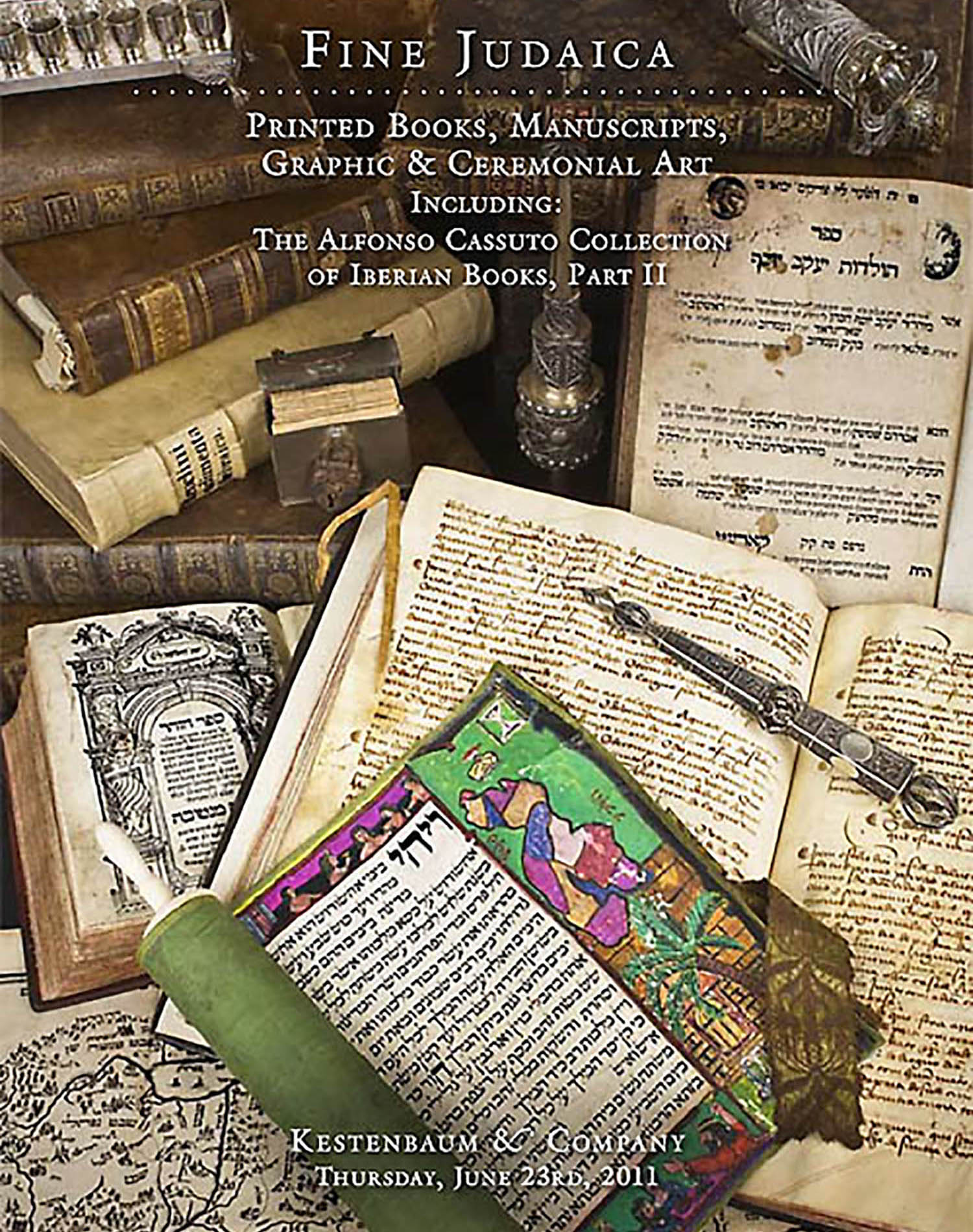Me’or Einaim [philosophy of history]

AUCTION 51 |
Thursday, June 23rd,
2011 at 1:00
Fine Judaica: Printed Books, Manuscripts Graphic & Ceremonial Art Including: The Alfonso Cassuto Collection of Iberian Books, Part II
Lot 153
DE ROSSI, AZARIAH
Me’or Einaim [philosophy of history]
Mantua: n.p. 1574
Est: $2,000 - $3,000
"The Me’or Einayim became so important that it rendered its author as one of the greatest, or perhaps the very greatest, of Jewish historians who flourished in the seventeen centuries between Josephus and Jost.” (S. Baron, Azariah de Rossi’s Attitude to Life, in: Studies in Memory of I. Abrahams, (1927) p.12).
Azariah de Rossi, was a member of an Italian Jewish family that traced its ancestry back to the time of Titus and the destruction of Jerusalem. His controversial Me’or Einaim questioned conventional medieval wisdom and introduced fundamental changes in chronology. De Rossi rehabilitated the works of the Jewish philosopher Philo, who had been ignored by Jewish scholars for almost 1500 years and exposed the Jossipon as an early medieval compilation based upon the works of Josephus, though with much falsification. In the spirit of the Renaissance, de Rossi turned to critical analysis and made use of the Apocrypha and Jewish-Hellenistic sources in his study of ancient Jewish history and texts. Most controversially, he suggested that Midrashic literature was employed as a stylistic device “to induce a good state of mind among readers,” and thus should not be understood to be literal. Such statements led the Me’or Einaim to be viewed as heresy and the work was banned by the Rabbinic authorities upon publication. Consequently De Rossi re-issued the work the same year, having changed the offending passages and adding an apologetic post-script.
See Carmilly-Weinberger, pp. 210-13; I. Mehlman, Gnuzoth Sepharim, (1976) pp.21-39. See also M. Silber, America in Hebrew Literature in: Publications of the American Jewish Historical Society, Vol. XXII
